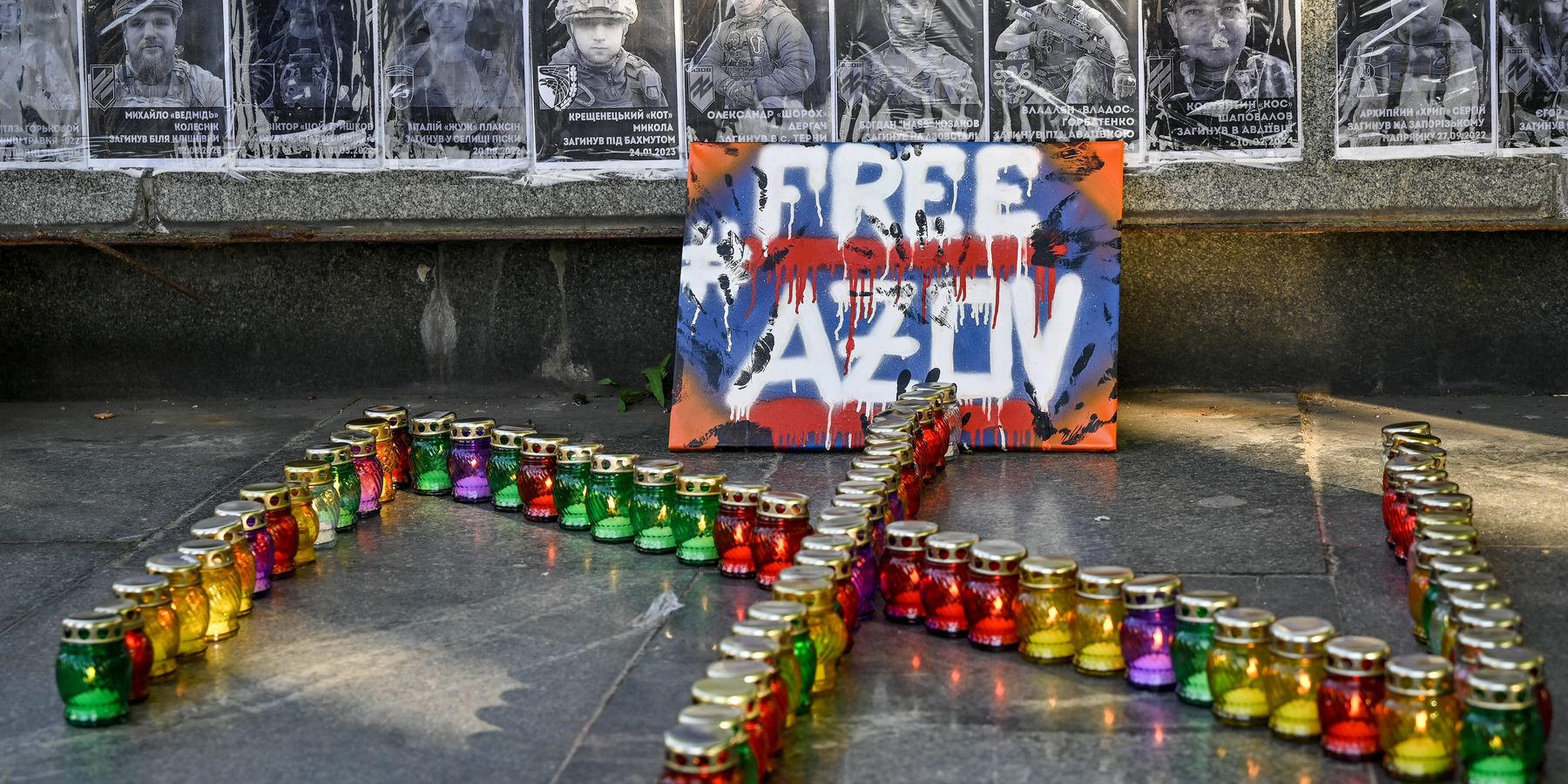The State Department announced that it has lifted its ban on the use of American weapons by the notorious Azov Brigade in Ukraine, an ultra-nationalist outfit widely described as “neo-fascist," even "neo-Nazi."
The group was initially formed in 2014 as a volunteer militia to fight against Russian-backed Ukrainian separatists in the eastern Donbas region, and later incorporated into the National Guard of Ukraine, under the purview of the Interior Ministry.
“After thorough review, Ukraine’s 12th Special Forces Azov Brigade passed Leahy vetting as carried out by the U.S. Department of State,” according to a statement by the Department which referred to the “Leahy Law” that restricts American military assistance to “units of foreign security forces where there is credible information implicating that unit in the commission of gross violations of human rights."
The ban was first put in place in a federal 2018 omnibus government spending package, citing that it was an ultranationalist outfit that openly invited neo-Nazis into its ranks. In addition, both Human Rights Watch and Amnesty International have reported on “credible allegations” of “torture and other egregious abuses” by Azov and other volunteer units. U.N. human rights officials have also accused the group of humanitarian violations.
“White supremacy and neo-Nazism are unacceptable and have no place in our world,” said Rep. Ro Khanna (D-Calif.) in 2018 when the ban was first imposed. “I am very pleased that the recently passed omnibus prevents the U.S. from providing arms and training assistance to the neo-Nazi Azov Battalion fighting in Ukraine.”
Azov’s links to and associations with far-right and quasi-fascist individuals and Nazi symbols has been well documented in Western media. The original founder of the paramilitary group, Andriy Biletsky, wrote that “the historic mission of our nation in this critical moment is to lead the White Races of the world in a final crusade for their survival. A crusade against the Semite-led Untermenschen.”
It was reported in 2014 that while Azov may represent one of the “most potent and reliable” military forces in Ukraine, they “also pose the most serious threat to the Ukrainian government, and perhaps even the state.”
Soon after being elected president in 2019, President Zelensky had attempted to follow through on his campaign promise of pursuing a peace policy with Russia. However, when seeking to encourage Ukrainian forces to agree to a plan of mutual disengagement on the front lines and to remove illegal arms from a small frontline town, Zelensky came face to face with the reality of the willingness of Azov-aligned forces to resist the demands of Kyiv. Biletsky at the time threatened Zelensky, saying that thousands more fighters would head to the town of Zolote if the president sought to evict those currently there.
Since Russia’s 2022 invasion, however, the Azov Brigade has undertaken a makeover of its external image as Moscow sought to play up their disconcerting past.
Naturally, this latest move by the State Department has been celebrated by Azov and met with rebuke in Moscow. However, this development also signals that the situation on Ukrainian front lines has become so acute that even a ban on an armed unit with ties to human rights violations and neo-Nazism is now being revoked.
Of course it cannot be denied that Azov has long-since demonstrated itself as one of the most capable fighting forces Ukraine has. Its ultimately unsuccessful, yet heroic defense of the Azovstal plant in Mariupol in 2022 contributed to a rise in their national prestige and helped garner the group a measure of approval from many in Ukrainian society who did not originally sympathize with the ultra-nationalist camp. In addition, the adoption by President Zelensky and the Ukrainian government of ethnic nationalist language has helped legitimize Azov and its discourse.
Nevertheless, the U.S. and Europe continue to “release the reins” so as to allow the Ukrainians to throw everything they have at the Russians. Unfortunately, while such steps have yet to alter the fundamental realities on the battlefield, they do show a willingness in Washington to directly support the types of armed groups that many Americans are otherwise conditioned to recoil from.
Alas, any future Ukrainian government that feels compelled to reach a compromise peace with Russia may well likely face armed protests by Azov and other such groups that could pose a real risk to the Ukrainian state, as happened in 2014.
- Why Zelensky won't be able to negotiate peace himself ›
- Far-right Azov quietly grew to tens of thousands in Ukraine military | Responsible Statecraft ›
















